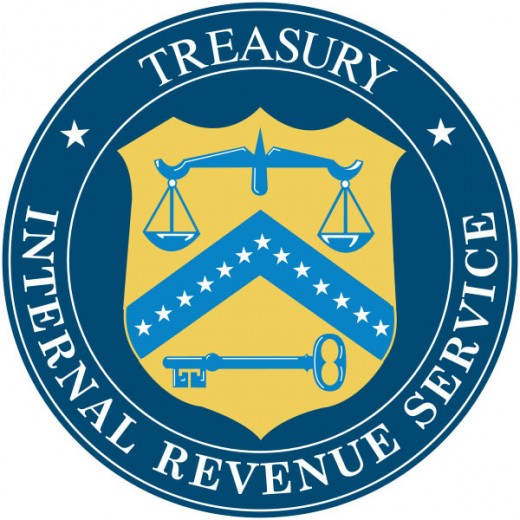Choosing the Best Wisconsin Tax Attorney
A letter from the IRS is never a good sign and when it brings an audit or demand for money, it is worse. When choosing a Wisconsin tax attorney, you need to take several steps to insure you hire the best. In this article we will discuss when you should seek a tax attorney or have a local accountant handle the tax issue and how to choose the best Wisconsin tax attorney.
You have three choices when facing the IRS: go it alone (never a good idea), hire a CPA or enrolled agent, or hire a tax attorney. A local CPA or enrolled agent will charge less than a tax attorney, but if the issue is serious, you need a tax attorney.
Choosing the right tax attorney is vital. Most tax issues, once determined, are difficult of impossible to reverse.
Who Should Represent You?
For most tax matters, an enrolled agent or CPA can manage well at a reasonable cost. A simple letter from the IRS can be nothing more than request for information or an assessment for missing income. Enrolled agents and CPAs are well trained to handle these situations and are lower-cost than a tax attorney.
Most tax audits don’t require a Wisconsin tax attorney. Unless fraud or other illegal activity is involved, the local tax professional has the experience needed to complete the audit.
If you are assessed a tax liability and need to appeal a decision, some enrolled agents and CPAs that specialize in appeals, can serve your needs. Once a matter requires tax court, you must have a tax attorney.
A tax attorney is more expensive, but probably more comfortable in an adversarial environment. Large audits, fraud, rogue IRS auditors, and complex tax issues should be handled by a competent tax attorney.

The CPA and Enrolled Agent
In minor field, office, and letter audits the local tax professional’s office provides several valuable services. CPAs and enrolled agents have extensive experience working with the IRS and auditors. The enrolled agent can supervise the audit when you are in contact with the IRS auditor and handle the remainder of the audit without you being there. This alone can help reduce the stress of an audit.
It is important to note that you want a CPA or enrolled agent with audit experience. Always ask before you pay a retainer. Also, inquire about the accountant’s policy on tax assessments. A large portion of tax assessments made by an auditor should be appealed. Each employee of the IRS has a different role and appeals are almost a normal part of the audit process today.
The Role of the Wisconsin Tax Attorney
I focus on Wisconsin tax attorneys because I have worked with several over the last 27 years. When helping a client search for an appropriate tax attorney, I ask several questions.
-
Experience is the most important question. I don’t want an attorney that handles tax issues on the side. The attorney must be able to practice before the Tax Court or they are little good. The tax attorney must have experience in the area of the tax code in dispute.
-
I want to know the last time they won against the IRS and the outcome; whether it was a full or partial victory. Court cases are public record; they should have no problem telling you they won 3 of their last 5 cases before the Tax Court. Tax Court cases are published at www.ustaxcourt.gov. Any tax attorney should have no problem pointing you to cases he heard. Review the cases provided. He should have won the case in whole or in part.
-
Ask about your tax attorney’s policy on Tax Court appeals. Except for small claims in Tax Court, decisions can be appealed.
-
If you are dealing with fraud and potential prison time, only consider firms that specialize in Tax Court and criminal issues. Ask. The legal firm must specialize in both Tax Court and criminal court.
-
Attorneys are expensive so you need to know what it will cost for representation and how much the initial retainer will be. Cost is the last consideration; quality the first.
What to Expect
Once you choose a tax attorney, you will be required to deposit a retainer for future fees and expenses. Your tax attorney will require all correspondence with the IRS and any working papers you and your tax preparer have. A decision will be made on whether to pursue IRS appeals or Tax Court, assuming the tax attorney didn’t handle the actual audit. If the attorney handles the audit, documentation on the disputed income or expenses will be requested and any working papers you or your tax preparer has.
It is important to note that unlicensed tax preparers have no privilege with your information and the IRS can use an unlicensed tax preparer against you. CPAs and enrolled agents are ethically bound to keep your information confidential. You have privilege in certain tax matters with CPAs and enrolled agents. However, in serious tax issues, it is wise to have the tax attorney work with your tax professional so that all conversations and working papers are held at a higher level of attorney/client privilege.
In Conclusion
A tax audit and similar IRS contact raises stress levels. The appropriate team of tax professionals and attorneys can reduce stress and resolve the matter in your favor. A Wisconsin tax attorney with experience, a winning record, and a focus on tax law can resolve tax matters that keep you awake at night.
Online CPE Courses for CPAs: Use online CPE courses that are low-cost to build your bottom line.
Cheap CPE for EAs: Low-cost CPEs that help enrolled agents take it to the competition.
9 Best Tax Software Programs: Review who has the best and worst tax software on the market today.
5 Questions to Ask Your Tax Preparer: Five questions every taxpayer must ask her tax preparer; five questions every tax pro must be ready to answer.
CPE Credits That Pay You: Get paid to complete your CPE requirements.





